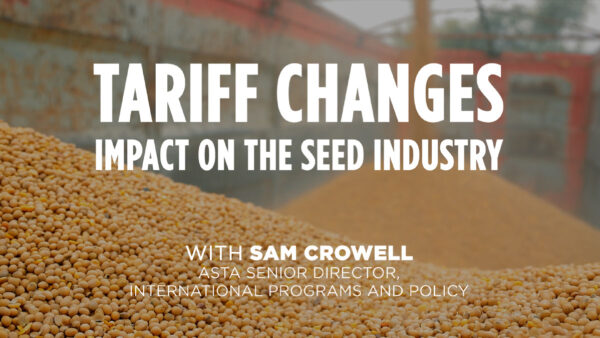Getting access to commercial varieties for breeding purposes and to marketed patented traits can be burdensome. A recently announced project might bring some relief. European Seed sat down with the steering group behind the “Agricultural Crop Licensing Platform” initiative.
European Seed (ES): Can you explain what is the background of the Agricultural Crop Licensing Platform ACLP initiative, and what are you aiming to achieve?
Agricultural Crop Licensing Platform (ACLP): The initiative is currently driven by 10 European plant breeding companies and trait developers representing a wide range of agricultural crops and includes small, medium-sized and big companies. They are jointly working together on the establishment of a simple legal framework enabling access to commercial varieties for breeding purposes and providing access to marketed patented traits on fair conditions in Europe with increased transparency, including eventually, genome edited traits. With this, the ACLP intends to be a collaborative source for plant breeding innovations.
We believe that this platform has the potential to benefit European society by ensuring that innovations bringing improvements in agricultural crop productivity and sustainability, can be available to all European breeders.
The geographical scope of the ACLP is Europe (specifically. the 38 Member States of the European Patent Convention, Ukraine and Russia).
ES: Your explanation implies that the current options for trait access in Europe are limited or very complex, is that the case?
ACLP: Indeed. The situation is two-fold. It all starts with accessing commercially available varieties for breeding purposes which is generally permitted under Plant Variety Protection. However, if a patented trait is contained in a commercial variety, patent laws in most European countries are seen to undermine this access since they do not provide for a statutory limited breeder’s exemption. Besides, it is unclear whether the trait owner would grant a license to the trait for commercial purposes, and if so, under what conditions. This means that access to specific traits can be a highly complex, time-consuming process, and can come with very diverse conditions which are not foreseeable to those requesting access. We want to change this and create a clearly defined and transparent setup, in which members can quickly access material for breeding and commercialization through standard license agreements.
ES: When you speak about members, I assume joining the ACLP will come at a price?
ACLP: Yes, there will be a membership fee for companies who want to join the platform. Though it is still a little too early to be specific about the fee structure, it is worth mentioning that the platform will be a non-profit initiative and therefore the membership fee will exclusively be used to finance the platform. The idea is to facilitate access to traits from innovators in plant breeding whether public or private, willing to join the initiative, while freedom to negotiate tailored licensing agreements will remain. The aim is to encourage the use of a standard license agreement which will speed up the conclusion of such licenses at low or even zero transaction cost. Although financial conditions remain to be negotiated between the parties, all other components of the license will be standardized. We are working on the final setup of membership conditions, and we are sure the benefits of joining the platform will clearly outweigh the costs attached.
ES: What is the situation for smaller breeders? Will they be able to join and what is their benefit compared to the “big players”?
ACLP: The aim of the ACLP is to ensure easy and inexpensive access to licenses for all members in general — and for small companies in particular. Special considerations for small companies in the model are currently under discussion. We are very happy to have some smaller breeders within the group of companies currently discussing about the set-up of this initiative bringing in their requirements and needs.
The main benefits for small companies include guaranteed access to and freedom to operate (FTO) for breeding with all varieties commercially available on the open market including those containing patented traits offered within the platform and maintaining such traits in progenies; minimizing transaction costs to obtain a commercial license; guaranteed FTO for commercialization of traits contained in newly bred varieties.
ES: What are the next steps? When will the platform be launched and what would a company need to do to be able to join it?
ACLP: We are currently in the process of setting up the final framework for the ACLP – including incorporation of the non-profit legal entity, finalizing membership options, technical setup etc. We are aiming to start operating in the beginning of 2022. Anyone who is interested in being part of the final platform preparation process is invited to get in touch, without any future commitment, at info@aclp.eu.













